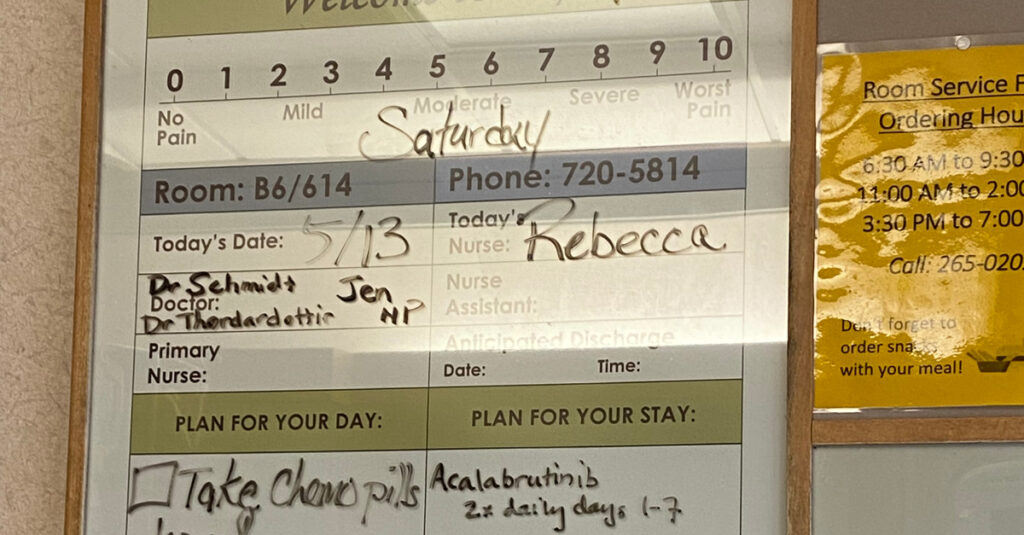On May 11, 2023, I embarked on the fourth leg of my treatment journey. According to the parameters of the clinical study, EA4181, this round introduced a different chemotherapy drug called cytarabine. The administration involved four cycles, each lasting three hours, spaced at 12-hour intervals—a rigorous 48-hour cycle. Due to the intensity of cytarabine, set at a robust 2000 dosage, I was required to be an inpatient at the Oncology/Hematology ward at UW Hospital in Madison, Wisconsin.

Navigating my first hospital stay, especially with the anticipation of a potent chemo drug, stirred a mix of emotions. Rebecca, my first nurse, proved to be an exceptional guide. The initiation involved a comprehensive hospital questionnaire and an introduction to using the iPad device for meal orders. A unique aspect of this hospitalization was the need to provide a bowel specimen for a C. diff test—a precautionary measure due to its contagious nature. Until I tested negative for C. diff, every staff member entering my room had to adhere to additional gowning and glove protocols, removed upon exit. Masking was obligatory for both me and all hospital personnel and visitors, considering the ward’s composition of patients with compromised immune systems.
Rebecca skillfully inserted my IV, setting the stage for the pre-treatment cocktail. The familiar friend, Rituximab, kicked off the session with a 1-hour infusion. Subsequently, I underwent a neurological assessment to establish a baseline for future cytarabine infusions. The initial 3-hour cytarabine infusion exhibited no immediate side effects from either Rituximab or cytarabine.
Continuing with cycles 2-4, the routine remained consistent, excluding Rituximab. The neurological assessments, pre-infusion cocktails, 3-hour high-dose cytarabine infusions, and 9-hour rest periods persisted. Regular walks in the hospital halls, monitored by an exercise specialist, became part of my routine. These strolls offered a poignant reminder of the resilience of the human spirit, witnessing fellow patients facing more significant challenges. Gratitude for the cutting-edge treatment I was privileged to receive deepened during these moments.
Entering this round, Dr. Rajguru had forewarned that it would exact a heavier toll on my body, likely necessitating a blood transfusion, with platelets being a primary concern. Post-hospital discharge, a series of lab appointments were scheduled to monitor various blood results. Despite the rigorous treatment, I felt remarkably well upon leaving the hospital. Notably, I successfully passed the C. diff test on the second day of hospitalization.